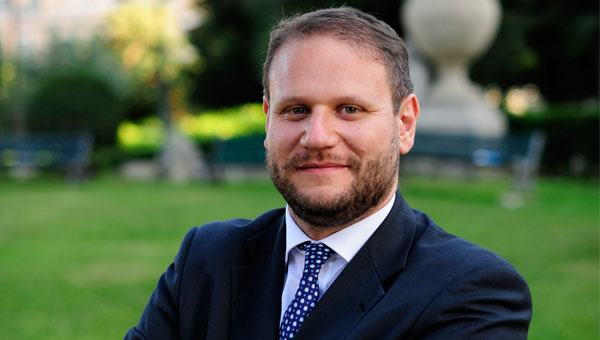Professor Riccardo Maiolini on Meta-organization Rejuvenation
On June 23, Riccardo Maiolini, Director of the JCU Institute for Entrepreneurship and Associate Professor of Business Administration, was invited to a conference held by the University of Ferrara called “Cooperative Enterprises Facing the New Socio-economic Environment.” Professor Maiolini presented a research paper on the topic of meta-organization rejuvenation.

Riccardo Maiolini
Tell us about your contribution to the Cooperative Enterprises Facing the New Socio-economic Environment conference. What exactly is meta-organization rejuvenation? Can you provide a concrete example of action being taken to further improve organizational models during a time of crisis?
This conference focused on the cooperative field, which is part of what I am doing my research on. I am looking at how meta-organizations try to deal with innovation. A meta-organization is defined as an organization that is formed by other organizations, rather than by individuals. In 2014, Legacoop, the biggest meta-organization of Italian cooperatives, launched a contest called Coop Startup as a way to promote the creation of new cooperatives. The idea was that, as new companies join the meta-organization, the interaction between the new and the old cooperatives would spark innovation within the operations of the meta-organization. I have been following this process in a longitudinal study since 2015 to see the effect of this new way of interacting within the same system.
The case you presented is about the Italian meta-organization, Legacoop. Can you please tell us a little bit more about this organization and what they do?
Legacoop is one of the oldest meta-organizations, and they operate across the entire Italian territory. The president of Legacoop decided to start the Coop Startup project in response to the external pressures of a changing market, new social problems, and digital transformation. The goal was to integrate younger generations within the system, which then brought about innovation at different levels in terms of governance, membership, and distribution of power.
Why is ‘social entrepreneurship’ so important for organizations today?
By using the mindset of a social entrepreneur, one can try to solve problems in a different way, focusing on the distribution of value instead of profitability. So, companies are not solely focused on gaining the most profit, instead, they share part of the value with stakeholders and beneficiaries.
You were invited to the conference by JCU alumna Asia Guerreschi. How does IFE work towards maintaining a close-knit, productive community between professors and students?
IFE hosts different activities such as classes, lectures, and guest speakers to keep alumni involved and to build a community among students and professors. It creates a relationship of giving and receiving constant feedback and sharing experiences. Asia Guerreschi is a Ph.D. student at the University of Ferrara, and she is researching sustainability within cooperatives. We met through Professor Michèle Favorite and started to talk about our research interests, and then Asia invited me to the conference.
What do you see in the future for social cooperatives?
The problem with these kinds of social issues is finding a good way to scale up. We must find a way to give the cooperatives the chance to grow, not just in the number of beneficiaries or people involved, but also in terms of the quality of the impact provided to those people. So, in terms of my research, the challenge is to find a way to allow the social enterprise to grow and to scale up but in a qualitative way.





